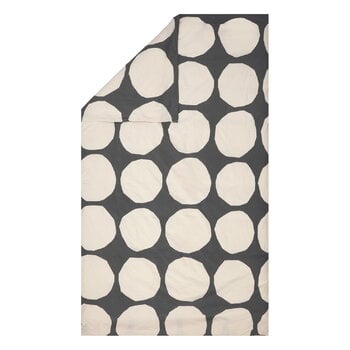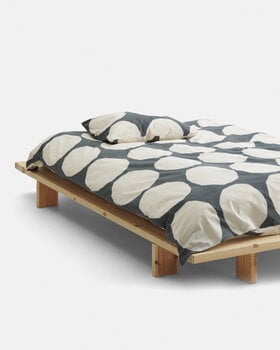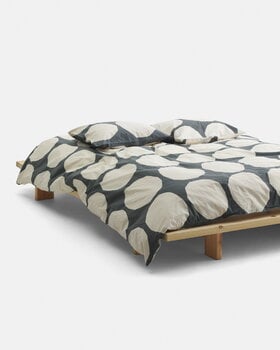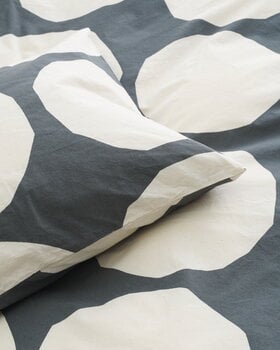Marimekko’s Kivet duvet cover is adorned with a pattern of jagged circles designed by Maija Isola in 1956. A Finnish word for stones, Kivet was inspired by large rocks that were dug up from the yard of the artist’s atelier. The Kivet pattern is coloured in hues of charcoal and unbleached cotton, giving the duvet cover a dynamic yet natural feeling.
The duvet cover is made of 100% cotton, and it measures 150 cm x 210 cm. Finish the style with Marimekko’s Kivet pillowcases.










